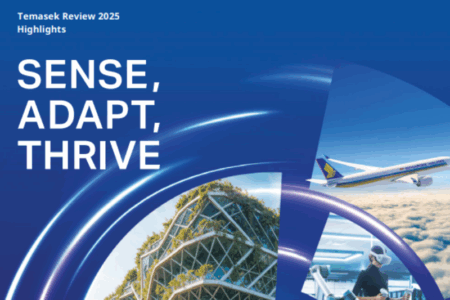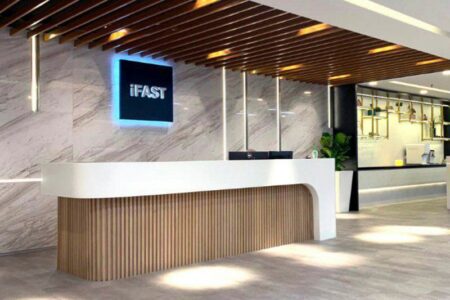CapitaLand Integrated Commercial Trust (SGX: C38U), or CICT, is the next in line to report its full-year 2023 earnings.
The retail and commercial REIT did not disappoint.
Not only did it report a higher distribution per unit (DPU) than in 2022, but it also sported robust operating and debt metrics.
Here are five highlights from the diversified REIT’s latest earnings that investors should pay attention to.
1. A solid financial report accompanied by a higher portfolio valuation
CICT reported a healthy increase in revenue and net property income (NPI) for the second half of 2023 (2H 2023).
Gross revenue rose 4.1% year on year to S$785.2 million while NPI increased by 4% year on year to S$563.6 million because of broad-based rental income growth across the REIT’s portfolio.
2H 2023’s DPU came in at S$0.0545, 1.7% higher than the S$0.0536 paid out a year ago.
For 2023, gross revenue climbed 8.2% year on year to S$1.56 billion with NPI improving by 7% year on year to S$1.12 billion.
DPU for 2023 stood at S$0.1075, an improvement of 1.6% over the prior year’s S$0.1058.
CICT’s portfolio also saw an overall increase of 1.2% year on year to S$24.5 billion, led by a 2% year-on-year increase in the valuations of its Singapore portfolio.
Germany and Australia, however, reported a 10% and 9.6% year on year decline in valuations but took up just 2.7% and 3.6% of the portfolio’s total valuation for 2023.
2. Resilient operating metrics with a diversified tenant base
The blue-chip REIT continued to sport resilient operating metrics.
CICT’s portfolio occupancy improved from 95.8% in 2022 to 97.3% in 2023, with the bulk of the increase coming from its office portfolio.
Rental reversion came in positive for both its retail and office portfolios, showcasing the attractiveness of the REIT’s properties.
Suburban malls saw a positive rental reversion of 8.3% while downtown malls enjoyed an 8.8% increase.
CICT’s office portfolio did even better with a 9% positive rental reversion for 2023.
The REIT also reported a diversified tenant mix with no tenant contributing more than 5.1% of total gross rental income (GRI).
CICT’s top 10 tenants took up just under 20% of total GRI.
3. An improvement in debt metrics
Moving on to the REIT’s debt metrics, there was a noticeable improvement as CICT’s aggregate leverage fell from 40.8% to 39.9%.
The REIT also had 78% of its borrowings on fixed rates to buffer against a sharp increase in finance costs.
The cost of debt inched up slightly from 3.3% as of 30 September to 3.4% at the end of 2023 and was 0.7 percentage points higher than the 2.7% as of 31 December 2022.
CICT continued to have a well-spread-out debt maturity profile.
18% of its total loans is due in 2030 and beyond while just 16% is due for refinancing in 2024.
4. Healthy leasing activity and retention rates
2023 saw healthy leasing activity across CICT’s portfolio.
771,500 square feet of retail space and 969,200 square feet of office space were leased out during the year.
Based on the net lettable area of expiring leases, the retention rate stood high at 82.8% for CICT’s retail portfolio and 86.5% for its office portfolio.
Across its malls, both shopper traffic and tenant sales also improved.
Tenant sales per square foot increased by 1.8% year on year, driven by a surge in tourist arrivals along with higher local consumption, and this metric has also surpassed the pre-pandemic level.
As for shopper traffic, it increased by 8.6% year on year because of new marketing initiatives that drove healthy shopper traffic.
CICT introduced new-to-market and new-to-portfolio concepts in the fourth quarter of 2023 such as Fore Coffee at Bugis Junction, ANTA (HKSE: 2020) at Westgate, and BOSS at Raffles City Singapore.
5. More AEIs planned
CICT’s current asset enhancement initiative (AEI) at CQ @ Clarke Quay is in its final stages with a committed occupancy of 85%.
Aside from this AEI, the REIT has announced four upcoming AEIs across three countries.
In Singapore, S$48 million will be set aside for an AEI for the IMM Building to increase the number of outlet stores to around 110 post-AEI.
The AEI will be conducted in four phases from the first quarter of 2024 (1Q 2024) and is expected to be completed by 3Q 2025.
The pre-commitment of AEI space for Phases 1 and 2 is around 70%, demonstrating healthy demand for the new space.
In Germany, CICT will upgrade the Galileo office building with a total AEI cost of between €175 million to €215 million.
This AEI will commence in February 2024 in three phases and will take 18 months to complete.
Finally, in Australia, the REIT intends to upgrade 100 Miller Street and 100 Arthur Street, with the former seeing an A$9 million transformation of its lobby to make the property more attractive.
Completion is slated for 2Q 2024 for 100 Miller Street.
As for 100 Arthur Street, CICT plans to partner with The Work Project to provide concierge services and a flexible workspace solution at the ground lobby and level 10.
In our latest report, we dive into five standout Singapore REITs offering distribution yields exceeding 5.5%. Why settle for less? Get more dividends hitting your bank account with our REITs guide. Click here to download for free now.
Follow us on Facebook and Telegram for the latest investing news and analyses!
Disclosure: Royston Yang does not own shares in any of the companies mentioned.





